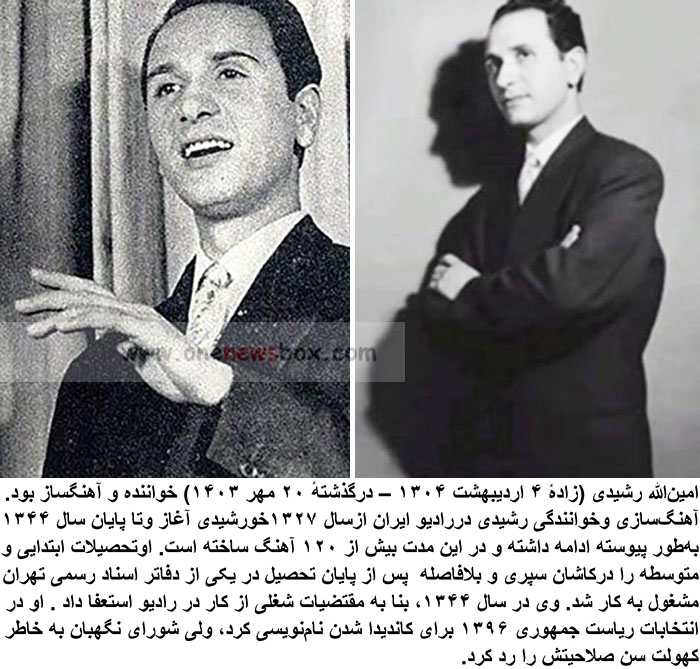Aminullah Rashidi, born on May 4, 1304 (1925), in the city of Ravand, Kashan, is one of the most influential figures in Iranian classical music. As a singer, composer, and musician, Rashidi played a crucial role in shaping Iran’s radio music scene, particularly between the late 1940s and 1960s. His contributions to both Iranian traditional music and contemporary styles have made him a respected figure in the country’s musical history. He passed away on Mehr 20, 1403 (October 12, 2024), leaving behind a legacy of innovation, creativity, and musical mastery.
This article delves into the life, career, and contributions of Aminullah Rashidi, exploring his early life, musical journey, and impact on Iranian music culture. His multifaceted career reflects his devotion to music, poetry, and art. In addition to his work in music, Rashidi was also a skilled Iranian carpet designer, showcasing his artistic versatility.
Early Life and Education
Aminullah Rashidi was born in the city of Ravand, Kashan, a region known for its rich cultural heritage. Growing up in an environment steeped in tradition, he was exposed to Persian art and music from an early age. Rashidi completed his primary and secondary education in Kashan, where he developed a deep interest in the arts, particularly in music and carpet design.
After completing his studies, Rashidi moved to Tehran, where he began working at a notary office. However, his true passion was always music, and it wasn’t long before he began immersing himself in the world of Iranian music. He would go on to study Iranian carpet painting under renowned artists like Mohammad Debir al-Sana’i and Hassan Naqshpour Araki. Under their mentorship, Rashidi became proficient in the design and innovation of Iranian carpets, showcasing a talent for creativity that extended beyond music.
At the same time, Rashidi began learning the basics of string instruments under Hassan Naqshpour, which laid the foundation for his eventual musical career. His curiosity and passion for music led him to experiment with various forms and styles, and he quickly progressed as both a musician and a composer.

